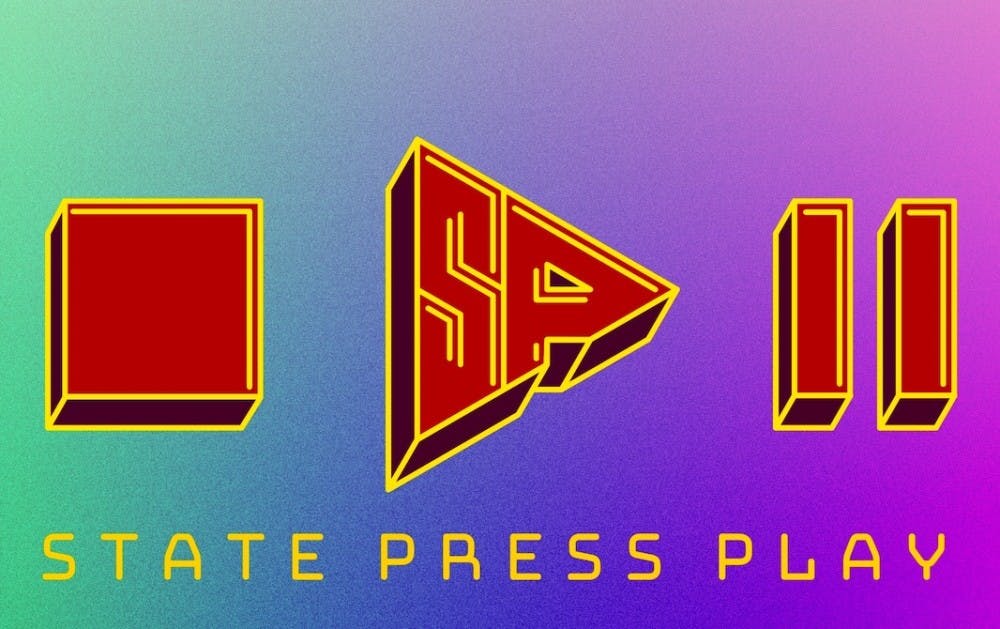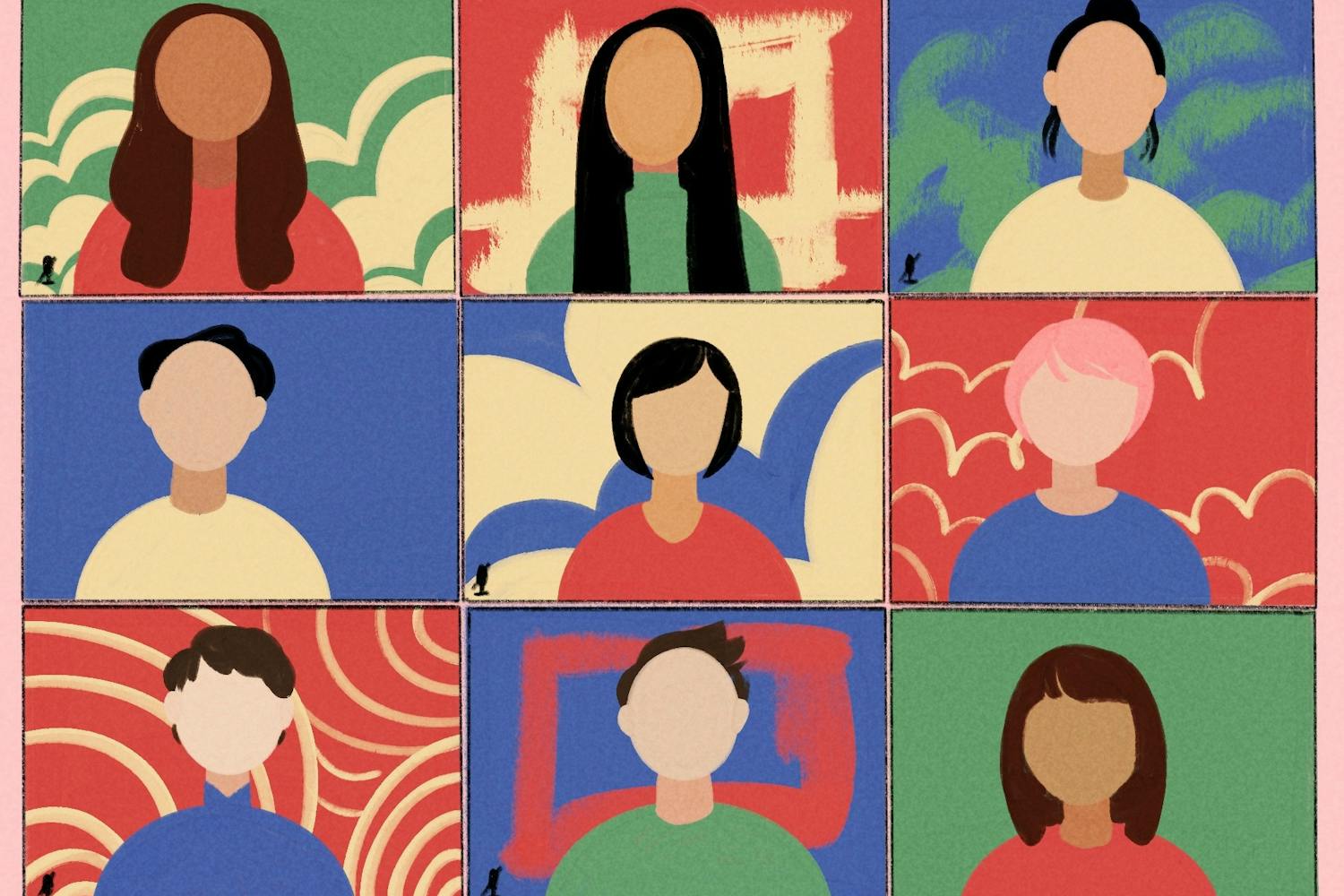On this episode of State Press Play, we discuss Bitcoin, Blockchain technology and all of the basic information a student should know before investing in cryptocurrency. Alfred Varela talks with Jeremy Liu from the Blockchain Innovation Society about the technology and the important things students should know about it.
Alfred Varela — Reporter:
It’s no secret that college students are in a constant search for extra money. Traditionally, students have looked towards part-time jobs, paid internships or what have you.
But as technology advances, there are increasingly more opportunities students are looking to take advantage of that could earn them some extra income. And, in recent months, a relatively new concept has been turning the heads of many students as potentially being the next big thing.
I’m, of course, talking about cryptocurrency, but more specifically Bitcoin.
Bitcoin has been in the news a lot recently and for good reason. Here’s a fact for you: If you had invested $9 of your money, roughly the same price as a combo meal from Chick-fil-A, into Bitcoin in 2010 when they were valued around .06c, and sold your Bitcoin late last year when Bitcoin hit it’s peak price around 19 thousand dollars, you could have been sitting on a pile of roughly 2.8 million dollars right now.
Of course, hindsight is 20/20. But before you go and throw your money at something you barely understand and only occasionally hear brought up in conversation, let me tell you what an ASU student should know about Bitcoin.
First of all, what is Bitcoin? Well, in short, it’s a digital currency that allows you to send or receive any amount of money globally in a fraction of the time it takes you to make a payment through traditional means.
It’s a decentralized currency, meaning there’s not overhead government or organization regulating it. This, of course, means that Bitcoin isn’t backed by another form of currency and is more similar to gold than paper currency you’re probably familiar with, but more on that later.
How does Bitcoin work you may ask? Well, when you swipe your credit card to buy something, you’re not actually paying the merchant directly. Instead, the information gets sent to your bank which pays the seller and you receive your goods, but with Bitcoin, there is no intermediary. There isn’t a bank that has complete access to your account. There is no third party that can remove, add, or fine any money in your account. It’s all on what’s called a peer-to-peer network.
Instead of your bank owning a ledger, which keeps track of all purchases you make, Bitcoin is monitored by anyone that chooses to participate. Imagine a giant poker table, with millions of people having a seat. Instead of one person keeping track of everything that everyone wins and loses, every player has a copy of the ledger and keeps track of every transaction made.
As you can imagine, this is a gargantuan ledger, and it’s what’s known as the Blockchain. But for more on what that is, I spoke to a member of the Blockchain Innovation Society here at ASU.
Jeremy Liu — mathematics sophomore:
Yeah so my name is Jeremy Liu, I’m a sophomore studying mathematics and I’m representing the Blockchain Innovation Society.
Varela:
How would you explain what Blockchain technology is in layman’s terms to an average ASU student?
Liu:
Yeah so, you can think of Blockchain technology as simply, I mean people say it’s this distributed ledger where basically it’s a ledger like an accounting system, but it’s open to everybody and everybody has access to it and can see everything that's happening.
Varela:
And with the technology being so relatively new, it brings with it new security concerns. The details of how the Blockchain work are abundant, as you may imagine, but the gist of what you need to know is that because the system is constantly being monitored by hundreds of thousands of people across the globe added on top of the fact that bitcoins are maintained through a digital signature that gives you control a certain private key which safeguards them, fraud is next to impossible.
This doesn’t mean, however, that it’s impossible to lose your bitcoins. You see, the only way to exchange your money for Bitcoins is through an online exchange, through which you have to provide your key, and it’s not impossible for them to be hacked, or simply take your key and bitcoins with them. Unlikely, but not impossible.
Earlier I said that bitcoins are similar to gold. What I meant by that was that bitcoins are finite. The creator put a cap on the amount that can exist to mimic real world resources (like gold), and as bitcoins are acquired through mining (another detail heavy topic) and other means, less of them exist, and this will, in theory, raise their value.
And, you may have heard how volatile Bitcoin is in terms of its price. Well, it’s unregulated state makes it so that there isn’t a government reinforcing it’s exchange rate. That’s done by the people who believe in it’s value or not, which make it’s price completely unpredictable.
These are all things any student should be aware of and have a full grasp on before investing.
Varela:
If you could speak to a random ASU student, what do you think is the number one thing they should know about Blockchain and Bitcoin, when looking into it?
Liu:
Ooh, that’s a tough one there’s so many different things. So, if you’re looking into Bitcoin or Blockchain technology, I think it’s absolutely crucial that you try to understand the technology itself before looking at the price depreciation, or anything like that, that we said before about. I don’t want anyone to try to like trade the currency or invest in the currency if they don’t understand it. I’m a big fan of what Warren Buffet says where he invests in things he understands, and I think everybody should do that. Or else, there is a very likely chance you’ll get burned, because there is huge risks in this space. And so, I think it all comes down to educate, educate, educate. Don’t believe what anybody else says because everybody is new to this space. It’s such an early technology, and it’s kind of your responsibility to educate yourself.
Varela:
Alright, for sure, Jeremy. Thank you so much for coming in today.
Liu:
Thank you so much.
Varela:
For State Press Play, I’m Alfred Varela.
Music: www.bensound.com
Reach the podcaster at amvarel3@asu.edu
Like State Press on Facebook and follow @statepress on Twitter.




